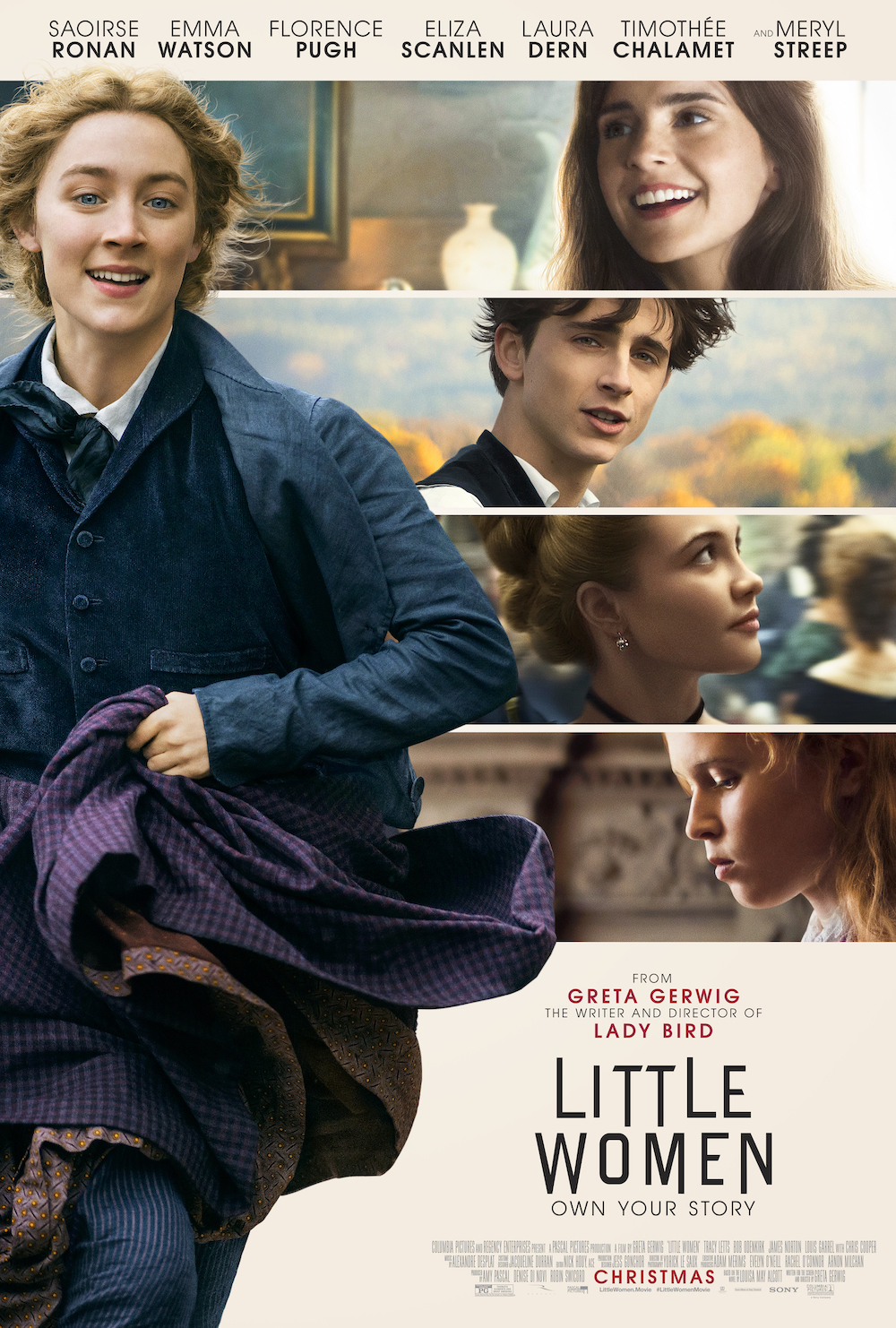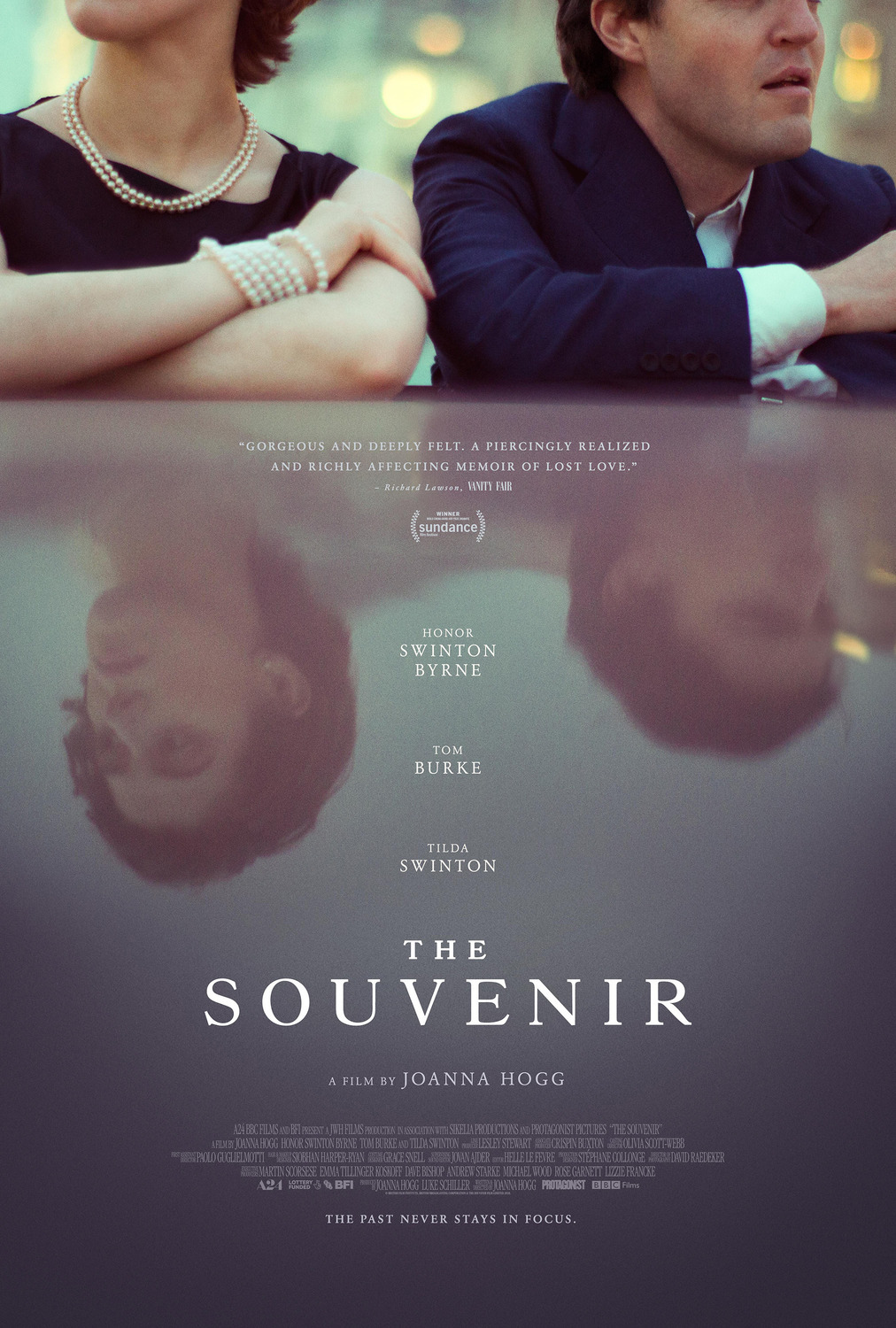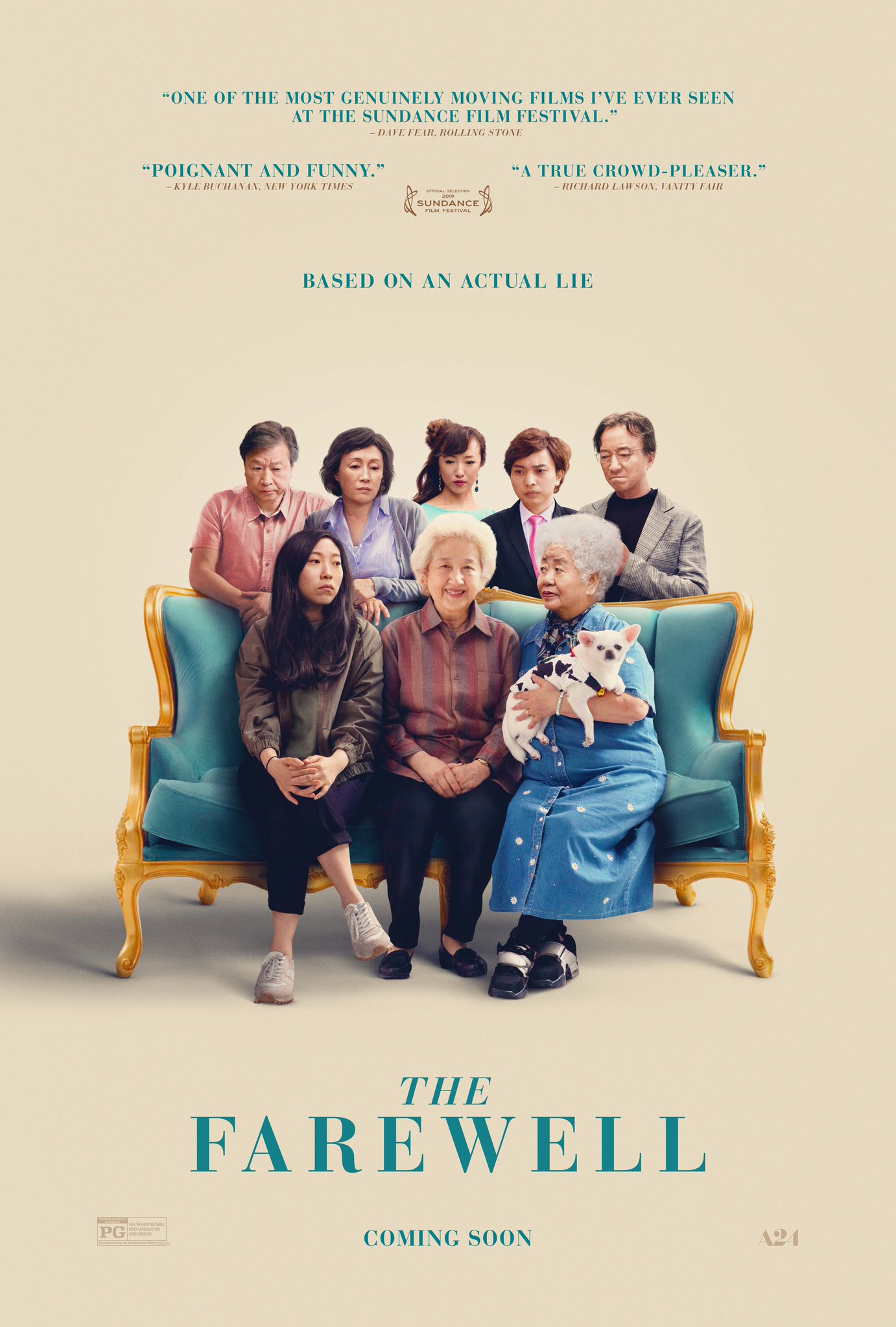A few great pieces of cinema from a year full of them
2019 was a wondrous year for film. The following list is meant to highlight a few of my favourites rather than be an exhaustive one. Uncut Gems is obviously one of the best of the year, but a review will come in the following issue.
Little Women
Fresh off the success of Lady Bird, Greta Gerwig continues her burgeoning directorial career with an adaptation of the Lousia May Alcott classic, Little Women. While the novel has been adapted for the silver screen seven times since its release in 1868, Gerwig’s adaptation is not derivative in the derogatory sense.
Leaning on a who’s who of young and coming talent, Gerwig breathes new life into the already heartwarming tale of Jo March and her siblings. Gerwig taps Saoirse Ronan, Emma Watson, Florence Pugh, and Eliza Scanlen to act as the March sisters, and the young but decorated quartet don’t disappoint. Laura Dern puts on a typical brilliant performance as the girls’ mother, while Timothée Chalamet makes hearts flutter as Laurie, Jo’s on-again, off-again lover.
Instead of moving in chronological order, the film offers us vignettes of the girls at different points in their lives. While the strength of their bond is tested by different factors, the sisters remain supportive of each other throughout each of their personal pitfalls. We could all take note of that for our own lives.
Parasite
Bong Joon-ho has crafted a reputation as the critics’ darling with Snowpiercer and Okja, but 2019’s Parasite has surely catapulted him to a level of fame beyond that of arthouse director.
Parasite got off to a great start in the festival circuit by winning the Palme d’Or in Cannes and it has captivated audiences all over the globe since then.
In a timely tale that centres on two South Korean families — the poor Kim family and the obscenely wealthy Park family — Joon-ho crafts a masterful diatribe against the ills of capitalism.
Beginning with the Kim’s teenage son stumbling into tutoring the Parks’ young daughter, Da-hye, the rest of the family manage to con the Parks’ into hiring them under the guise that they are unrelated. This first half of the movie simply serves to set the stage for an unexpected climax.
Without ruining the plot of the film, it would suffice to say that Joon-ho forces us to interrogate the social structures at play that both force the Kim family into such actions and lead them to protect their newfound position so dearly.
The Souvenir
If you’ve seen Archipelago, you’ll know that Joanna Hogg likes to make a very particular kind of film about well-to-do British families enduring a certain degree of interpersonal strife. Not much happens, but the characters are all fleshed out in a way that’s rare nowadays. It’s a very particular acquired taste, and not one I expected A24 to jump at the chance to produce, but it was one of my favourites of the past year.
The film casts Tilda Swinton and her daughter Honor Swinton Byrne as an on-screen mother-daughter duo, and they both excel in their roles.
Honor plays Julie, a sheltered young film student whose world gets upended when she falls into a toxic relationship with an older man named Jack. He is old enough and worldly enough to essentially wrap Julie around his finger, and she appears happy to oblige. As the state of Jack’s addiction to heroin becomes more apparent, and he borrows more and more money from Julie to sustain it, their “relationship” begins to fray. Jack gaslights Julie with an ease that suggests he’s done the same before — he says at one point: “Stop torturing yourself, stop inviting me to torture you.” — and largely has his way. Some of the most uncomfortable scenes in the movie are when Julie has to approach her mother for money to lend to Jack. The excuse is never buyable enough to suggest that Julie’s mother fully believes it, but she is willfully blind enough to reach into her pocketbook and pass along a couple of £50 notes.
Although the narrative is a simple one, Hogg’s deft pacing (the screenplay is her own) and uncanny ability to evoke the perfect atmosphere is where the film’s staying power is derived from. I left the theatre with the same sense of melancholia that pervaded the film, but also with the same subdued optimism Julie finished off with.
The Souvenir won’t change your life, but it wasn’t meant to. It’s a bildungsroman to measure one’s own growing pains against.
The Farewell
The Farewell begins with a note saying that it’s “based on an actual lie.” The lie in question is what the film’s conflict revolves around and is powerful enough to almost divide an entire family.
Director Lulu Wang pulled on her own family’s drama to pen the script. Wang’s family learned that her grandmother had terminal cancer and supposedly only a few months left to live, but they opted not to tell her so as to let her enjoy the rest of her life in peace. The rationale was that it was the family’s duty to shoulder the emotional burden of the diagnosis. Wang told this family story on the podcast, “This American Life”, which prompted producers to clamour for the rights to turn it into a movie.
The dramatized version casts Awkwafina of Crazy Rich Asians, and Ocean’s 8 fame as Wang’s on-screen counterpart, Billi.
Billi is a typical New York creative: scrounging to make rent while hoping for her career to take off. After learning she has been rejected for the Guggenheim fellowship she applied for, Billi is forced to turn the other cheek when her parents, Haiyan and Jian, tell her that Nai Nai (her grandmother) has terminal cancer and only a few months left to live. Knowing Billi wears her heart on her sleeve and fearing that she will reveal the diagnosis, her parents beg her to remain in New York while they travel to Changchun, China to visit Nai Nai.
The conflict that follows is a fraught balancing act between the collectivist mindset inherent to Billi’s parents’ upbringing in China, and the more selfish individualist one that Billi has internalized in the Western world. Billi and Nai Nai have several conversations in which we fear Billi might reveal the truth to Nai Nai, but she ultimately bites her tongue. On the other end, the pressure of shouldering the burden for Nai Nai begins to wear on the rest of the family who bicker amongst themselves. The heaviness of the lie takes its toll on everyone, leaving Nai Nai to wonder what has everyone so blue while she practices tai chi with a contagious sense of joy.
Wang’s deeply personal tale will ultimately make you appreciate your own family more.
